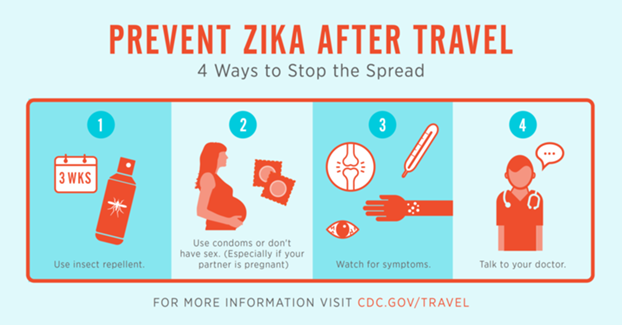Latino Zika Week of Action and How You Can Lower Your Risk
Posted on 08/05/2016 @ 07:45 PM

By: Geoffrey Nolan, LULAC National Communications Associate
Perhaps you’ve heard of the athletes who refuse to go to the Olympic Games out of Zika fears, or maybe you read about the threat of Zika Virus in the newspaper. The undeniable truth is that the Zika Virus is quickly making its way to American shores and has the potential to infect some of our most vulnerable citizens. Just this week,
the CDC issued an unprecedented travel advisory for a Miami neighborhood due to an outbreak, the first time the CDC has issued such an advisory in the United States. Although Zika is a popular buzzword thrown around by media pundits, it’s important that we do not underestimate the severe effects of the virus on certain subgroups. It’s imperative that we take an active role in preventing our friends and loved ones from contracting it.
Even though stories about the Zika Virus receive almost daily media coverage, very few Americans know the actual symptoms of the virus and are able to adequately assess their risk. The tricky thing about Zika is that its symptoms may seem like any other sickness. Those infected often experience fever, rash, joint pain, conjunctivitis, muscle pain, and headache. Those at highest risk are pregnant women who can pass the virus to the fetus, causing the baby to potentially be born with a variety of birth defects including microcephaly..
How do you prevent the spread of Zika? Because the primary cause of infection is mosquito bites, it is imperative that one take all the necessary precautions to avoid being bitten by mosquitoes. Wear long sleeve shirts and long pants outdoors and always use insect repellent to protect yourself from mosquitoes outside. When inside your home, make sure to eliminate breeding spaces for mosquitoes, including any stagnant water. Zika can also be spread through sexual contact, so it is essential that men always where a condom when engaging in sexual activity to reduce their risk of contracting or spreading the virus.
For Latino Zika Week of Action, LULAC is partnering with other Latino organizations, the CDC, and the U.S. Department of Health and Human Services to ensure that the Latino community has all the necessary information to adequately assess their risk factors and take the necessary precautions to protect themselves. Together we can stop the spread of Zika and lessen its impact in our country. To learn more, visit www.cdc.gov/zika.
Geoffrey Nolan is a Communications Associate at LULAC National. He graduated from the University of Georgia, where he majored in International Affairs and Spanish.

Comments
Leave a Comment
You must be logged in to leave a comment.